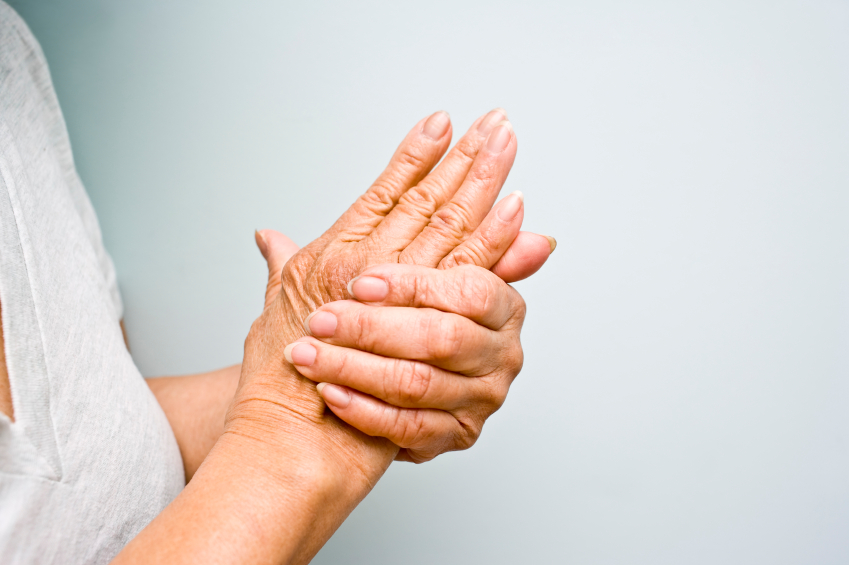Diagnosis and Treatment of Hand Fractures in Wake County

What is a Hand Fracture?
A hand fracture is a break in one of the bones of the hand. The bones in your hand include phalanges (the small bones that form the thumb and fingers) and metacarpals (the five bones located in the hand’s palm). A hand fracture occurs when force is applied to the bone, either along the shaft or near the surface of a joint. In most cases, a hand fracture can be treated with nonsurgical techniques. However, severe fractures may require surgery to realign the broken pieces of the affected bone or bones.

Causes and Risk Factors of Hand Fractures
A hand fracture can be caused by a fall, crush injury, twisting injury, improper use of tools or equipment, or through direct contact in sports. The most common hand fracture is a boxer’s fracture – a fracture of the fifth metacarpal, which is the bone that supports the little finger. A boxer’s fracture is caused by punching or striking a hard object with a closed fist.
Symptoms of Hand Fractures
Symptoms of a hand fracture will vary depending on the location and severity of the fracture. Proper treatment is key to a full recovery and the continuation of your ability to do the things you love. Common signs and symptoms of hand fractures to look out for include:
- Tenderness or pain
- Swelling
- Bruising
- Deformity
- Numbness in your hand or fingers
- Stiffness or inability to move your fingers or thumb
How is a Hand Fracture Diagnosed?
If you suspect that your hand is broken, your doctor will conduct a physical examination to check for deformity, mobility, and strength. Imaging tests such as an X-ray can be used to determine if a bone is broken and identify the location and extent of the fracture. If a fracture is seen in one of the bones of the hand, your doctor will recommend the best treatment plan based on your individual situation.

Treatment for Hand Fractures at Raleigh Orthopaedic
In some cases, your doctor can realign the bone fragments by gently manipulating them back into place without making an incision. This is known as a closed reduction. A cast, splint, or brace may be applied to the bone in order to aid the healing process. Depending on the location and stability of the fracture, you may need to wear the cast for 3 to 6 weeks. Certain types of fractures can also be protected with the use of a removable splint or by being “buddy strapped” to an adjacent non-injured finger for support. After about 3 weeks, you can begin hand exercises for rehabilitation.
More serious hand fractures, such as open fractures where pieces of bone have broken through the skin, may require surgery to be treated. During surgery, your doctor will make an incision to reposition bone fragments and use small metal devices – wires, plates, screws, pins, and staples – to hold the pieces of fractured bone in place. After the procedure, you will likely have to wear a cast or splint for a period of time to avoid further injury and ensure a full recovery. Discuss with your doctor when it is safe to begin range-of-motion exercises and resume normal activities.

Recovery from Surgery for a Hand Fracture
While most hand fractures do not require surgery to heal, some need plates and screws to hold the bone in the proper position. It will likely take about six weeks for the hand to fully heal after surgery. You will be advised to wear a splint during your recovery, and medication may be recommended for pain relief during the healing process. Pins and needles are a normal sensation in the weeks after surgery for a hand fracture, as this is a sign of healing.
How to Prevent Hand Fractures
Most hand fractures occur as the result of an accident, so it is not always possible to completely avoid this type of injury. There are, however, measures you can take that will decrease your risk of sustaining a fracture. Incorporating vitamin D and regular exercise into your diet and routine can be very effective in helping to strengthen your bones. You should also take the proper steps to avoid falls when possible, including avoiding wet surfaces, using handrails when possible, making sure your home is well-lit, and wearing comfortable, well-fitting shoes.

Care for Hand Fractures at Raleigh Orthopaedic Clinic
At Raleigh Orthopaedic Clinic, our board-certified orthopedic doctors and hand and wrist surgeons have years of experience diagnosing and treating a wide range of musculoskeletal conditions and injuries, including hand fractures. We are committed to providing the highest quality care for patients in Wake County, ensuring that all of your needs are addressed and questions are answered. For more information about our services or to schedule an appointment at one of our convenient office locations, please give us a call or book online today!




